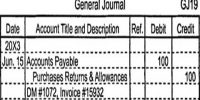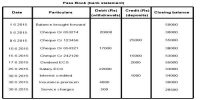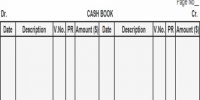The bookkeeping equation for a sole proprietorship is assets = liabilities + owner’s equity. The bookkeeping equation for a corporation is assets = liabilities + stockholders’ equity. The bookkeeping equation is also referred to as the accounting equation.
In the bookkeeping equation:
- assets are the resources owned by the business
- liabilities are the amounts the business owes
- owner’s equity is the amount the owner invested plus the net income of the business minus the amounts the owner withdrew for personal use (all since the business began)
Often it is said that the liabilities and owner’s equity are the claims against the assets. It can also be said that the liabilities and the owner’s equity are the sources of the assets.
The bookkeeping equation should always be in balance because of double-entry bookkeeping.
Applications
The accounting equation is fundamental to the double-entry bookkeeping practice. Its applications in accountancy and economics are thus diverse.
Financial Statements
A company’s quarterly and annual reports are basically derived directly from the accounting equations used in bookkeeping practices.
Double Entry Bookkeeping System
Accounting equation plays a significant role as the foundation of the double entry bookkeeping system. This accounting system ensures that a company’s accounts are always balanced and that all financial transactions are documented in detail.
Income and Retained Earnings
Income and retained earnings of the accounting equation is also an essential component in computing, understanding, and analyzing a firm’s income statement. This statement reflects profits and losses that are themselves determined by the calculations that make up the basic accounting equation.
Company Worth
Since the balance sheet is founded on the principles of the accounting equation, this equation can also be said to be responsible for estimating the net worth of an entire company.
Investments
Due to its role in determining a firm’s net worth, the accounting equation is an important tool for investors looking to measure a company’s holdings and debts at any particular time, and frequent calculations can indicate how steady or erratic a business’s financial dealings might be.















